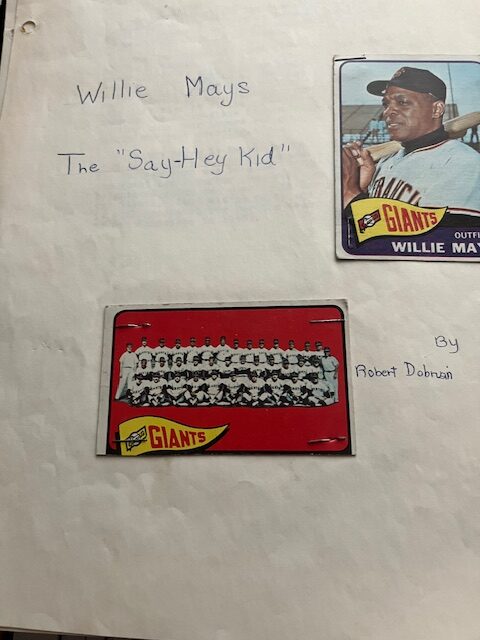Reading today of the death of Senator Joe Lieberman, I thought about the impact of his candidacy for the Vice Presidency in 2000. Shortly after hearing the news, I wrote this piece for the Ann Arbor News. It appeared in the paper on August,20, 2000. It is interesting to read and consider twenty-four years later.
For the better part of the previous week, I had been waiting for the news of Al Gore’s selection of his running mate. Part of my interest comes naturally from my interest in politics. But, a big part of the reason for my fascination with this process was that Senator Joseph Lieberman’s name had been prominently mentioned.
When I heard of his selection, I was stunned momentarily. Then, I began to feel elation which still hasn’t subsided.
How important this decision will be in the long run is unclear. What is clear for me, as an observant Jew, a Jewish parent and a rabbi is that this day will forever remain in my mind as a historic day of joy and deep appreciation for the blessings of this country.
This isn’t about political opinions. As I said to my congregation a few days after the choice was made, it is truly terrific that the citizens of this country have the opportunity to vote for, or vote against, a Jewish man for vice president. Win or lose, this is a tremendous moment for American Jews and a moment of promise for Americans everywhere.
I want you to know why I am so happy. But, first, let me tell you two aspects of the discussion following this milestone which troubles me.
First, as important as I believe it is for a person to be religiously observant and as much as faith and religious ritual can add to a person’s life, we must be careful not to assume that because a person is religiously observant, he or she automatically becomes a role model, let alone a proper candidate for elected office.
Religious observance and faith can lead us to a proper balance recognizing both the great potential and the limitations of human beings. Religious observance can lead us to a life of ethics and morality. But, religious faith can also be insincere, and even sincere faith can produce an arrogance which blinds a person to the fact that there are different paths to God and different sources for ethical life. The true test of human beings must be how they live, what decisions they make in their life, what priorities they set and how ethical is their behavior.
I certainly have no reason to think that Senator Lieberman is anything but an honorable, ethical, competent individual. But, no one should vote for or against a candidate simply because he or she claims to be religiously observant. With Senator Lieberman or any candidate of faith, we must ask the difficult questions concerning their stand on the issues, their honesty and sincerity and their ability to lead and govern.
Secondly, I rejoice in the fact that people will learn more about Jewish observance from watching Senator Lieberman. Already there is a fascination about what he will do and won’t do on the Sabbath, what he will eat and won’t eat, and what home rituals he would observe should he be elected.
This is a great opportunity for Americans to learn more about Jewish traditions but no one should expect Senator Lieberman to represent Judaism to the nation. If elected, he will be the vice president, not the “first Jew”. His observance, while a matter of interest to the nation, is no one’s business but his.
Therefore, I hope he would be cautious to remember that his Jewishness, while affecting his daily life and influencing the ethical and moral decisions he makes, must remain in the background to his role as a candidate and, if elected, as vice president.
With these two disclaimers in mind, I believe that Senator Lieberman’s selection to be one of the most important moments in the American Jewish community and our nation as a whole have experienced in recent years.
I am thrilled that Vice President Gore did not allow Senator Lieberman’s heritage or his religious commitment to stand in the way of picking the person he felt could best serve as his running mate. His choice shows a trust in the fairness and openness of the American people.
Our children, ages seven and five, won’t understand the words or the meaning of the moment but I want them to know that, once again, our nation has proven that anything is possible for them. Nothing will stand in their way. Their self-definition and public identification as Jews will be respected, and they will be judged for their ability and their talents, not their religious heritage.
That brings us to the most important aspect of this entire story. Inasmuch as there has been in the past significant anti-Semitism in this country and pockets of anti-Semitism remain, Jews enjoyed involvement at all levels of our society before Senator Lieberman’s choice. Now that a Jew has a place on the national ticket of a major party, it would seem no barriers remain for Jews. Can the same be said for others?
Senator Lieberman’s selection must be followed by many barrier-breaking actions. Barriers must be broken throughout our society where individuals are exclude from any segment of society or from full and equal participation in society because of race, religion, gender or any other criteria. We must work for the day when all of the barriers fall, and as a reflection of that, when the major parties’ national ticket will routinely include those who have have been excluded, because of gender, race, sexual orientation, financial resources or any reason.
God willing, the day is coming when Americans can vote for, or against, a candidate of any background. Our children would then inherit a nation of fairness and equality and they, and our nation, will be that much more blessed.
I truly rejoiced when I heard the news. Win or lose, the future won’t be the same. But, I hope that long before Election Day, the “novelty” will have worn off and, after the election, Joseph Lieberman will be referred to as the winning or losing vice presidential candidate, not the winning or losing Jewish vice presidential candidate. And then, I pray that we will see more and more people from varied background and communities nominated for regional, state and national office and referred to in the only way that matters: as Americans.
Then, the promise of this day will truly have been fulfilled.

